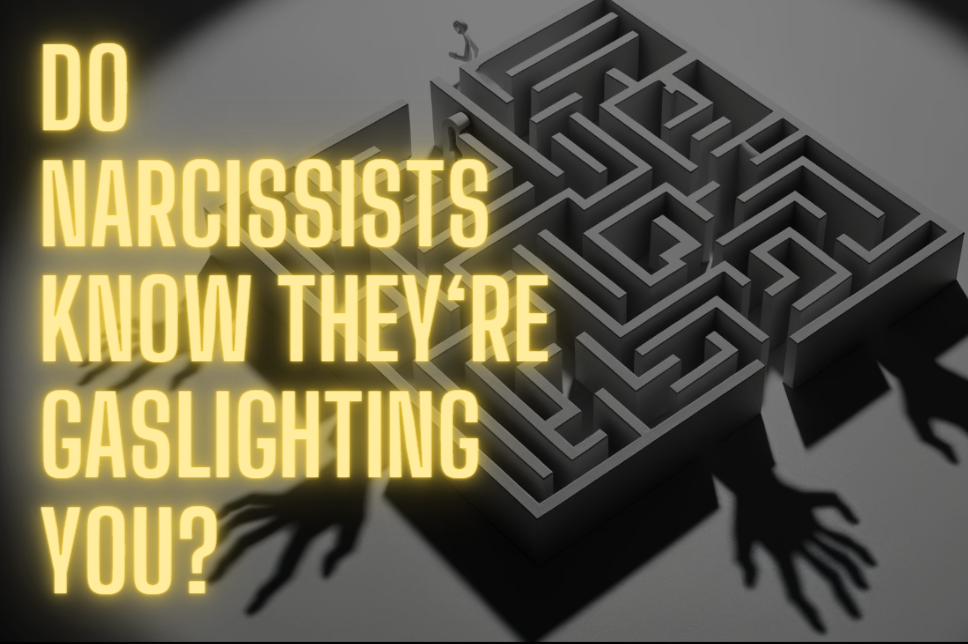Introduction
Definition of Gaslighting
Gaslighting is a term you’ve probably heard thrown around in conversations about toxic relationships. It’s a form of emotional manipulation where one person tries to make another doubt their own perceptions, memories, or sanity. Imagine someone continually dismissing your feelings or experiences, and you’re left questioning what’s real. That’s gaslighting in a nutshell.
Overview of Narcissistic Personality Disorder (NPD)
Now, let’s talk about Narcissistic Personality Disorder, commonly known as NPD. This isn’t just an inflated ego; it’s a recognized mental health condition. Individuals with NPD often lack empathy and have a grandiose sense of self-importance. But here’s where things get tricky. They also have an almost magnetic charm, making it difficult to easily categorize their actions as malicious.
The Big Question: Do Narcissists Know They’re Gaslighting?
So, with all this talk about gaslighting and narcissism, you may be wondering, do narcissists actually know they’re gaslighting you? It’s a complex issue and one that gets to the heart of understanding emotional abuse. Let’s dig in and try to unpack what’s really going on.
What is Gaslighting?
Emotional Manipulation Tactics
Gaslighting is more than just lying; it’s a calculated effort to destabilize someone’s mental state. Tactics can range from trivializing your feelings to flat-out denying events ever occurred. In essence, it’s a strategy to gain control and make the victim dependent on the gaslighter for what’s “true.”
Examples in Relationships, Work, Etc.
This kind of manipulation isn’t confined to romantic relationships. You can experience gaslighting in work environments, friendships, and even family settings. Maybe it’s a boss who undermines your accomplishments, or a friend who always makes you feel like the “crazy” one. The common thread is that it’s not about the truth; it’s about power.
What is Narcissistic Personality Disorder?
Key Traits of NPD
NPD goes beyond mere vanity or selfishness. People with this disorder often have an inflated sense of their own worth, a deep need for excessive attention, and a lack of empathy. It’s a complex condition that requires a clinical diagnosis and often entails long-term treatment.
Brief Overview of DSM-5 Criteria
According to the DSM-5, the diagnostic manual used by mental health professionals, criteria for NPD include a pervasive pattern of grandiosity, a need for admiration, and a lack of empathy, among other factors. These criteria offer a framework to understand how severe the disorder may be.
The Complexity of Intention
Can It Be Unconscious?
While gaslighting seems intentionally cruel, the intent can vary. Some narcissists might not even be aware they’re gaslighting. They’re so wrapped up in their own narrative that they genuinely believe they’re in the right, leading to a grey area in discussions about intent.
The Spectrum of Awareness
Awareness among narcissists can be on a spectrum, from fully conscious manipulators to those who are clueless about their impact on others. This makes the question of intention hard to answer definitively.
Research Findings
Studies on Self-Awareness in Narcissists
The scientific community hasn’t reached a consensus on whether narcissists are fully aware of their gaslighting behavior. Some studies suggest a level of cognitive dissonance; they know something’s off but don’t connect the dots to their own actions. Other research points to a more deliberate form of manipulation.
Psychological Profiles and Expert Opinions
Experts in the field have differing views on this subject. Some argue that narcissists are strategic and fully aware of their manipulation, while others claim it’s a byproduct of their personality disorder. Therefore, it’s essential to approach this topic with nuance and avoid painting everyone with the same brush.
The Victim’s Perspective
Common Feelings and Experiences
For those on the receiving end, gaslighting can result in significant emotional turmoil. Victims often report feeling confused, isolated, and doubting their own sanity. The impact can be long-lasting and lead to issues like anxiety and depression.
The Difficulty in Discerning Intention
When you’re being gaslighted, it’s often hard to tell if the person is consciously manipulating you or if they’re just acting according to their personality traits. This ambiguity adds an extra layer of complexity for the victim, making it difficult to devise coping strategies.
Why The Answer Matters
Implications for Victims
Understanding the intention behind gaslighting can significantly influence how victims approach the situation. If it’s a conscious act, legal avenues might offer some form of redress. On the other hand, if the behavior is unconscious, therapeutic interventions may be more applicable.
Legal Repercussions
If we determine that narcissists are aware they’re gaslighting, that could open the door for legal consequences. Current laws vary widely on emotional abuse, but clarity on intention could be a game-changer in how these cases are handled.
Conclusion
Summary of Key Points
We’ve delved into the murky waters of gaslighting and narcissistic personality disorder, exploring whether narcissists are aware they’re manipulating you. From the research findings to the victim’s perspective, it’s clear that the issue is complicated and not easily reduced to simple answers.
The Importance of Awareness and Education
One thing is certain: the more we understand these behaviors and their underlying causes, the better equipped we are to address them. Whether that involves legal action, therapeutic intervention, or personal coping strategies, knowledge is power.
And that’s it—our attempt to dissect an intricate and emotionally charged topic. This is an area where ongoing research and public discourse are critical, not just for potential victims but for society at large. Understanding the nuances can help us navigate these complicated interpersonal dynamics more effectively.





